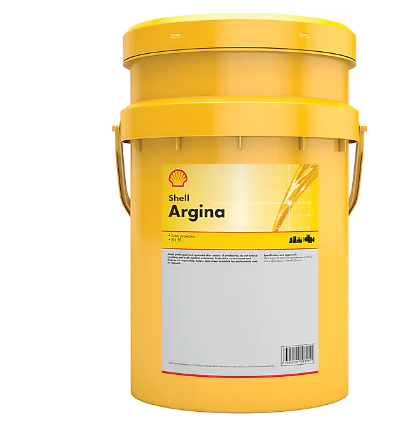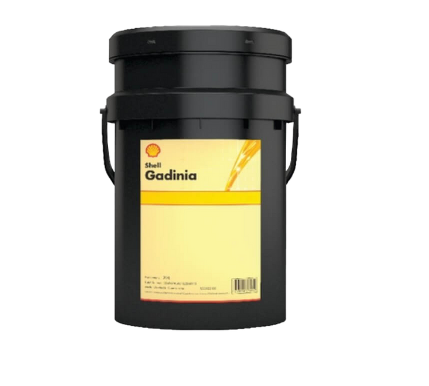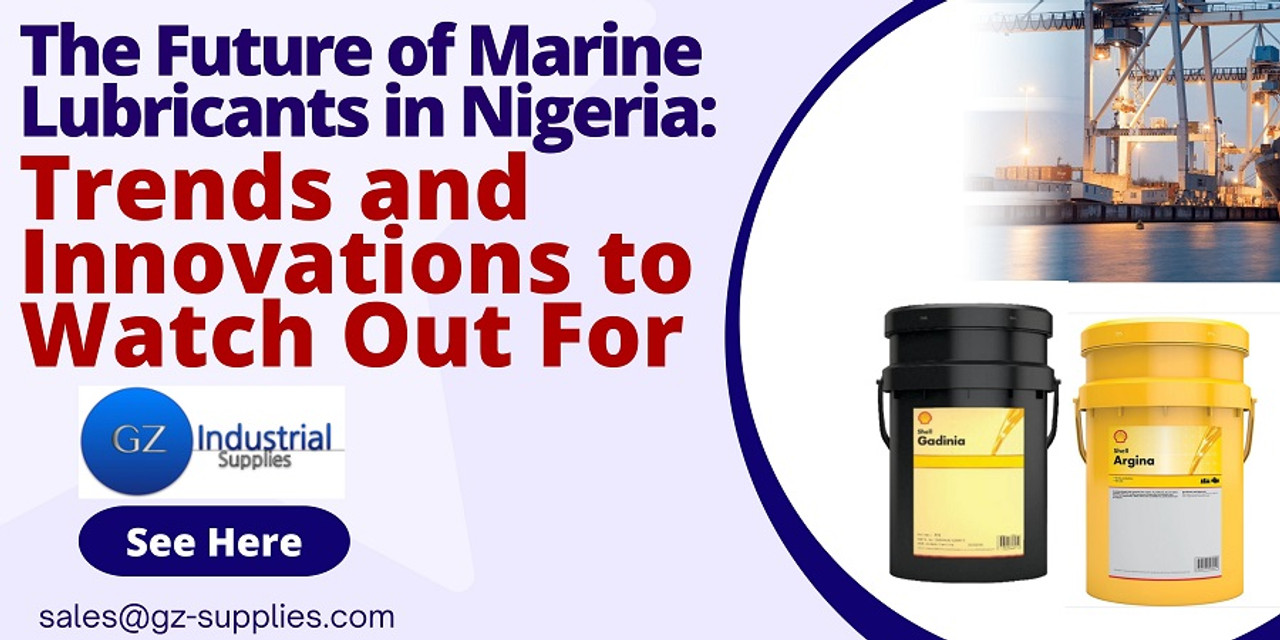The Future of Marine Lubricants in Nigeria: Trends and Innovations to Watch Out For
Marine lubricants are vital in ensuring the smooth operation of ship engines and machinery. The demand for marine lubricants in Nigeria has grown in recent years due to the increasing number of ships entering Nigerian waters. The country's strategic location as a gateway to West Africa has made it a major hub for international shipping. Additionally, the growth of the Nigerian economy has led to an increase in imports and exports, which has also contributed to the demand for marine lubricants, which is expected to continue in the coming years.
The regulatory environment in Nigeria is also contributing to the growth of the marine lubricants market. The Nigerian Maritime Administration and Safety Agency (NIMASA) have implemented regulations to ensure that ships calling at Nigerian ports comply with international environmental protection standards, including regulations on using low-sulfur fuels and the disposal of oily waste. High-quality marine lubricants are also essential in complying with these regulations.
This article will discuss the future of marine lubricants in Nigeria, highlighting the trends and innovations to watch out for in the types of lubricants and the industrial application of marine lubricants in various industries. We will also highlight some important tips for selecting the best marine lubricants for your application.
The current Trends in Marine Lubricants in Nigeria Remember
One of the key trends in the marine lubricants market is the shift towards more environmentally friendly products. The use of biodegradable and low-toxicity lubricants is becoming increasingly popular, especially in countries where environmental regulations are strict. Another trend is the development of lubricants that can withstand higher temperatures and pressures, allowing for more efficient engines and machinery. Synthetic lubricants offer better performance than mineral-based lubricants and are also gaining popularity.
Here are some of the current trends in marine lubricants:
1. Biodegradable Lubricants:
There is increasing demand for environmentally friendly lubricants in the marine industry. Biodegradable lubricants are becoming more popular as they are made from renewable sources, have low toxicity, and are biodegradable. Biodegradable lubricants are particularly useful for equipment operating in sensitive environments such as coastal waters, harbours, and ports. Biodegradable lubricants are essential due to the perceived lack of interest in the environment by oil companies in Nigeria; these kinds of lubricants present significant advantages, such as environmental usefulness, and may help reduce dependencies on mineral lubricants in the future.
2. Synthetic Lubricants:
Synthetic lubricants are becoming increasingly popular in the marine industry due to their superior performance to conventional mineral oils. Synthetic lubricants have excellent oxidative stability, thermal stability, and low-temperature fluidity. They also offer better wear protection, reduced oil consumption, and longer life. Full synthetic oils have fewer impurities, making them less prone to turning acidic inside diesel engines.
3. Digitalization:
Digitalization is changing the way marine lubricants are monitored and managed. Remote monitoring systems and sensors are increasingly being used to track the performance and condition of equipment allowing predictive maintenance and reducing downtime and maintenance costs.
4. Cylinder Oil Optimization:
With the introduction of low-sulfur fuels, cylinder oil optimization has become a critical issue. New cylinder oils have been developed to provide optimal performance with low-sulfur fuels, which include cylinder oils with higher base numbers, lower feed rates, and improved detergency. Marine lubricants are crucial for cylinder oil optimization in marine engines. Cylinder oil lubricates the piston rings and cylinder liners in marine engines, protecting them from wear and reducing friction. However, the choice of cylinder oil can significantly impact engine performance, emissions, and maintenance costs.
Marine lubricants can help optimize cylinder oil usage in several ways. Here are some examples:
i) Base Number (BN) Matching
Marine engines require cylinder oils with a specific Base Number (BN) to neutralize the acidic byproducts of combustion. However, the BN requirement can vary depending on the engine type, fuel quality, and operating conditions. By selecting the right marine lubricant with the appropriate BN, operators can optimize cylinder oil usage, reduce cylinder liner wear, and prevent excessive deposits.
ii) Fuel Quality
The quality of fuel used in marine engines can impact cylinder oil usage. Higher sulfur content in fuel can lead to increased acid production during combustion, requiring higher BN cylinder oils. By using marine lubricants to counteract the negative effects of high-sulfur fuels, operators can optimize cylinder oil usage and reduce maintenance costs.
iii) Wear Protection
Cylinder oils must provide adequate wear protection to prevent cylinder liner scuffing and wear. Marine lubricants that offer superior wear protection can help extend cylinder liner life, reduce maintenance costs, and improve engine reliability.
iv) Deposit Control
Cylinder oils can form deposits on the piston ring grooves and cylinder liners, reducing engine performance and increasing maintenance costs. Marine lubricants that offer effective deposit control can help optimize cylinder oil usage, reduce deposits, and improve engine performance.
Marine lubricants play a vital role in cylinder oil optimization in marine engines. By selecting the right marine lubricant, operators can optimize cylinder oil usage, reduce wear and deposits, and improve engine performance and reliability.
5. High-Performance Lubricants:
High-performance lubricants are becoming more popular in the marine industry. These lubricants are formulated to provide superior performance under extreme conditions, such as high temperatures, loads, and pressures. They also have longer service intervals, reducing maintenance costs and downtime. Examples of high performance lubricants include Shell Lubricants such as Shell Argina, Shell Gadina, and Shell Mysella.
6. Vessel Performance Monitoring:
Vessel performance monitoring systems are becoming increasingly popular in the marine industry. These systems measure and analyze a vessel's performance, including fuel consumption, emissions, and engine performance. This data can be used to optimize vessel performance and reduce operating costs.
In summary, the marine lubricant industry is constantly evolving, and several current trends are shaping the industry. Biodegradable lubricants, synthetic lubricants, digitalization, cylinder oil optimization, and vessel performance monitoring are some of the current trends in marine lubricants. The need for improved performance drives these trends, reduced environmental impact, and increased efficiency in the marine industry.

Shell Argina S3 40 for marine application
Innovations to Watch Out For in Marine Lubricants
The marine lubricants market is ripe for innovation, and there are several developments to watch out for in the coming years. One of these is using nanotechnology to develop lubricants that can reduce friction and wear on engine parts. Another innovation is using sensors to monitor the performance of lubricants in real-time, allowing for more accurate maintenance schedules and reducing the risk of breakdowns.
Here are several innovative developments to watch out for in the coming years. Here are some of the key innovations:
1. Smart Lubricants
Smart lubricants are equipped with sensors that monitor performance and provide real-time data to operators, which allows operators to optimize lubricant usage and reduce maintenance costs. Smart lubricants can also detect early signs of wear and damage, allowing for timely maintenance and reducing the risk of equipment failure.
2. Bio-Based Lubricants
Bio-based lubricants are derived from renewable sources such as vegetable oils, animal fats, and bio-synthetics. These lubricants offer improved biodegradability and a reduced environmental impact compared to traditional mineral-based lubricants.
3. Nanotechnology-Based Lubricants
Nanotechnology-based lubricants use nanomaterials to enhance lubricant performance. These materials can improve lubricant viscosity, wear resistance, and thermal stability, among other properties. Nanotechnology-based lubricants also have the potential to reduce friction, leading to improved fuel efficiency and reduced emissions.
4. Low Sulphur Lubricants
As the shipping industry moves towards compliance with stricter environmental regulations, there is a growing demand for low-sulfur lubricants. These lubricants have a lower sulfur content and are formulated to work with low-sulfur fuels, reducing emissions and improving environmental performance.
5. 3D Printing of Lubricant Components
3D printing technology is used to create custom lubricant components with complex geometries. It allows for improved performance and reduced waste compared to traditional manufacturing methods. 3D printing can also enable the creation of lubricant components on demand, reducing lead times and inventory costs.
In summary, the marine lubricant industry is embracing several innovative developments that are expected to improve lubricant performance, reduce environmental impact, and lower maintenance costs. Smart lubricants, bio-based lubricants, nanotechnology-based lubricants, low-sulfur lubricants, and 3D printing of lubricant components are key innovations to watch out for in the coming years.

Shell Gadinia 40 is a type of marine Lubricant
The Industrial Applications of marine lubricant
Marine lubricants have various industrial applications and are used in different equipment and machinery, including marine engines, compressors, turbines, and hydraulic systems. Some of the key industrial applications of marine lubricants are;
1. Marine Engines
Marine lubricants are essential in ensuring that ships and other marine vessels operate safely and efficiently. Marine engines require high-performance lubricants to ensure their efficient and reliable operation. Marine lubricants are specially formulated to withstand the harsh conditions of marine environments, including high temperatures, pressure, and humidity. They help to reduce wear and tear on engine parts, prevent corrosion, and minimize the risk of breakdowns.
2. Compressors
Compressors are widely used in various industries, including oil and gas, petrochemicals, and manufacturing. These machines require high-quality lubricants to ensure proper functioning and prolong lifespan. Marine lubricants are ideal for compressors as they resist high temperatures and protect against wear and tear. They also help prevent deposit formation and reduce the risk of equipment failure.
3. Turbines
Turbines are used in power generation, as well as in various industrial processes. These machines operate at high speeds and temperatures, making them prone to wear and tear. Marine lubricants are specially designed to withstand the extreme conditions of turbine operation and provide superior protection against corrosion and oxidation. They also help improve the turbine's efficiency and reduce maintenance costs.
4. Hydraulic Systems
Marine lubricants are ideal for use in hydraulic systems as they provide excellent protection against wear and tear, reduce the risk of equipment failure, and help extend the components' lifespan. Hydraulic systems are widely used in various industries, including construction, mining, and manufacturing. These systems require high-quality lubricants to ensure proper functioning and prevent component damage.
In summary, marine lubricants have various industrial applications and are essential in ensuring the proper functioning of equipment and machinery in different industries. They help to reduce wear and tear on components, prevent corrosion, and improve the efficiency of machinery. By using high-quality marine lubricants, industrial operators can minimize the risk of equipment failure and reduce maintenance costs, thereby improving productivity and profitability.
Important Industries that employ the use of marine lubricants for their operation
Marine lubricants are specially formulated oils and greases designed to meet the unique needs of the maritime industry. They lubricate the engines, gears, bearings, and other machinery in ships and offshore platforms. In addition to the maritime industry, marine lubricants also find applications in other industrial sectors. In this article, we will discuss the industrial applications of marine lubricants.
1. Mining and Quarrying Industry
Mining and quarrying operations involve heavy machinery, which operates under harsh conditions. The machinery is subject to high loads, extreme temperatures, and dust and dirt. Marine lubricants can lubricate this machinery's gears, bearings, and other components, ensuring smooth operation and preventing breakdowns. Marine lubricants can also protect against corrosion and wear, extending the lifespan of the equipment.
2. Power Generation Industry
Power generation plants rely on turbines and generators to produce electricity. These machines require high-quality lubricants to ensure their efficient and reliable operation. Marine lubricants can be used to lubricate these machines' bearings, gears, and other components, reducing friction and preventing wear and tear. The use of marine lubricants can also improve the efficiency of the machines, reducing energy consumption and lowering operating costs.
3. Transportation Industry
Transportation is another sector that can benefit from the use of marine lubricants. The engines, transmissions, and other components of vehicles and heavy-duty equipment require lubrication to operate smoothly. Marine lubricants can be used in transportation to reduce friction and wear, improve fuel efficiency, and reduce emissions. Marine lubricants can also protect against corrosion and contamination, extending the lifespan of the equipment.
4. Manufacturing Industry
Manufacturing plants use various machinery, including pumps, compressors, and conveyors. These machines require lubrication to operate efficiently and reliably. Marine lubricants can be used in manufacturing to reduce friction, prevent wear and tear, and protect against corrosion. Marine lubricants can also provide excellent oxidation and thermal stability, ensuring the equipment operates reliably even under extreme conditions.
summary
In summary, marine lubricants have various industrial applications beyond the maritime industry. They are essential for the efficient and reliable operation of heavy machinery in mining, power generation, transportation, and manufacturing. The use of marine lubricants can improve the performance of machines, reduce energy consumption and emissions, and extend the lifespan of the equipment. As industrial operations become more demanding, the importance of high-quality marine lubricants will only increase.
How to select the right marine lubricant
Selecting the best marine lubricant can be stressful, as there are many factors to consider. The lubricant you choose will depend on several factors, such as the type of engine or machinery, operating conditions, and the manufacturer's recommendations. Here are some guidelines to help you select the best marine lubricant:
1. Identify Your Needs:
Before selecting a marine lubricant, it is important to identify your needs. Determine the machinery requiring lubrication, the operating conditions, and the manufacturer's recommendations. This information will help you select the right type of lubricant for your equipment.
2. Viscosity:
Viscosity is an important factor to consider when selecting a marine lubricant. Viscosity is the lubricant's resistance to flow and is measured in centistokes (cSt). The viscosity required for your equipment will depend on the manufacturer's recommendations and the operating conditions. If the viscosity is too low, it may result in increased wear and tear; if it is too high, it may cause excessive heat buildup.
3. Additives:
Marine lubricants contain additives that enhance their performance. Some of the additives include detergents, dispersants, and anti-wear agents. The type and amount of additives required will depend on the operating conditions and the equipment. For instance, if your equipment operates in harsh conditions, you may require a lubricant with more anti-wear additives.
4. Compatibility:
Ensure that the marine lubricant you select is compatible with the materials used in your equipment. Using a lubricant incompatible with your equipment's materials can cause damage, reducing its lifespan.
5. Quality:
Select a high-quality marine lubricant from a reputable manufacturer. High-quality lubricants provide better performance, increased equipment lifespan, and reduced maintenance costs in the long run.
6. Environmental Regulations:
Ensure the marine lubricant you select complies with local and international environmental regulations; this includes regulations on the disposal of used oil and low-sulfur fuels.
In summary, selecting the best marine lubricant requires careful consideration of various factors such as viscosity, additives, compatibility, quality, and environmental regulations. By considering these factors, you can select a lubricant that will enhance the performance and lifespan of your equipment. It is also important to follow the manufacturer's recommendations when selecting a lubricant to avoid potential issues with your equipment.
Conclusion:
The future of marine lubricants in Nigeria looks bright, with growing demand driven by the country's strategic location and economic growth. The trends in the market are toward more environmentally friendly and efficient products, while the innovations to watch out for include nanotechnology and sensor-based monitoring. The regulatory environment also supports the market, with regulations in place to ensure compliance with international standards for environmental protection. By keeping an eye on these trends and innovations, stakeholders in the marine lubricants market in Nigeria can position themselves for success in the coming years.
To learn more: Contact GZ Industrial Supplies.







